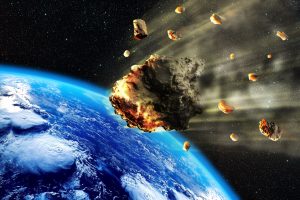Lawyers Are Gearing Up For Lawsuits Over Asteroid Strike... Seriously
One wouldn't imagine that an extinction-level event would generate a lot of litigation, but...
 Were you or a family member struck by an asteroid? You may be entitled to compensation.
Were you or a family member struck by an asteroid? You may be entitled to compensation.
One wouldn’t imagine that an extinction-level event would generate a lot of litigation, but apparently that’s a topic that more than a few people spend their time worrying about as more and more asteroids are reported skirting dangerously close to the Earth.
From Cosmos:

Navigating Financial Success by Avoiding Common Pitfalls and Maximizing Firm Performance
One problem is what would happen if one country, worried about protecting its own citizens, attempted to deflect the asteroid, screwed up, and accidentally dumped it on a neighbour.
Space law, says David Koplow of Georgetown University Law Centre, Washington DC, is based on the principle of strict liability.
“The concept is that space activities are hazardous and therefore the harm should not fall on an innocent bystander,” Koplow says.
Asteroids really need better lobbyists because we’ve done wonders converting all sorts of activities to lower standards of liability over the years.
Still, this adds a wrinkle to the film Armageddon, where the U.S. sent a bunch of untrained oil rig workers who hadn’t, to that point, caused a massive oil spill, armed them with nuclear weapons, and sent them to blow up an asteroid. Would America have thought twice about that plan that only gets more absurd every time you think about if it expected to face strict liability for sending a number of city-smashing chunks into other countries?
The answer is almost assuredly “no” because America’s concern for the countries that would get smashed in this scenario is next to nil.
Sponsored

The Business Case For AI At Your Law Firm


Navigating Financial Success by Avoiding Common Pitfalls and Maximizing Firm Performance

Is The Future Of Law Distributed? Lessons From The Tech Adoption Curve

The Business Case For AI At Your Law Firm

But this is the struggle for lawyers studying the asteroid hypothetical: who is responsible for failing the world and, probably more importantly, who is responsible for saving it?
It’s a particularly important problem, [Petr Boháček, of Charles University in Prague] says, because the nations at risk of being hit by an asteroid may not be the ones with the greatest geopolitical power. “Asteroids do not discriminate,” he notes.
The nation-state concept of sovereignty, he adds, dates back several hundred years.
“I’m not sure how many concepts from the seventeenth century you use in your decision-making,” he says, “but making decisions for planetary defence based on this dinosaur method of decision-making may not be the best choice.”
Hyperbole is always appreciated but let’s not call the Treaty of Westphalia a “dinosaur method.” It may be old and ill-suited to an era of global calamity, but this seems like an exaggeration. When it comes to dealing with asteroids, the “dinosaur method” was pretty much just sitting around and eating to gluttonous extremes before dying in a hail of fire.
On second thought, perhaps we do live in the dinosaur regime.
The biggest danger about an asteroid strike? Lawyers [Cosmos]
Sponsored

Legal AI: 3 Steps Law Firms Should Take Now

Early Adopters Of Legal AI Gaining Competitive Edge In Marketplace
 Joe Patrice is a senior editor at Above the Law and co-host of Thinking Like A Lawyer. Feel free to email any tips, questions, or comments. Follow him on Twitter if you’re interested in law, politics, and a healthy dose of college sports news. Joe also serves as a Managing Director at RPN Executive Search.
Joe Patrice is a senior editor at Above the Law and co-host of Thinking Like A Lawyer. Feel free to email any tips, questions, or comments. Follow him on Twitter if you’re interested in law, politics, and a healthy dose of college sports news. Joe also serves as a Managing Director at RPN Executive Search.








